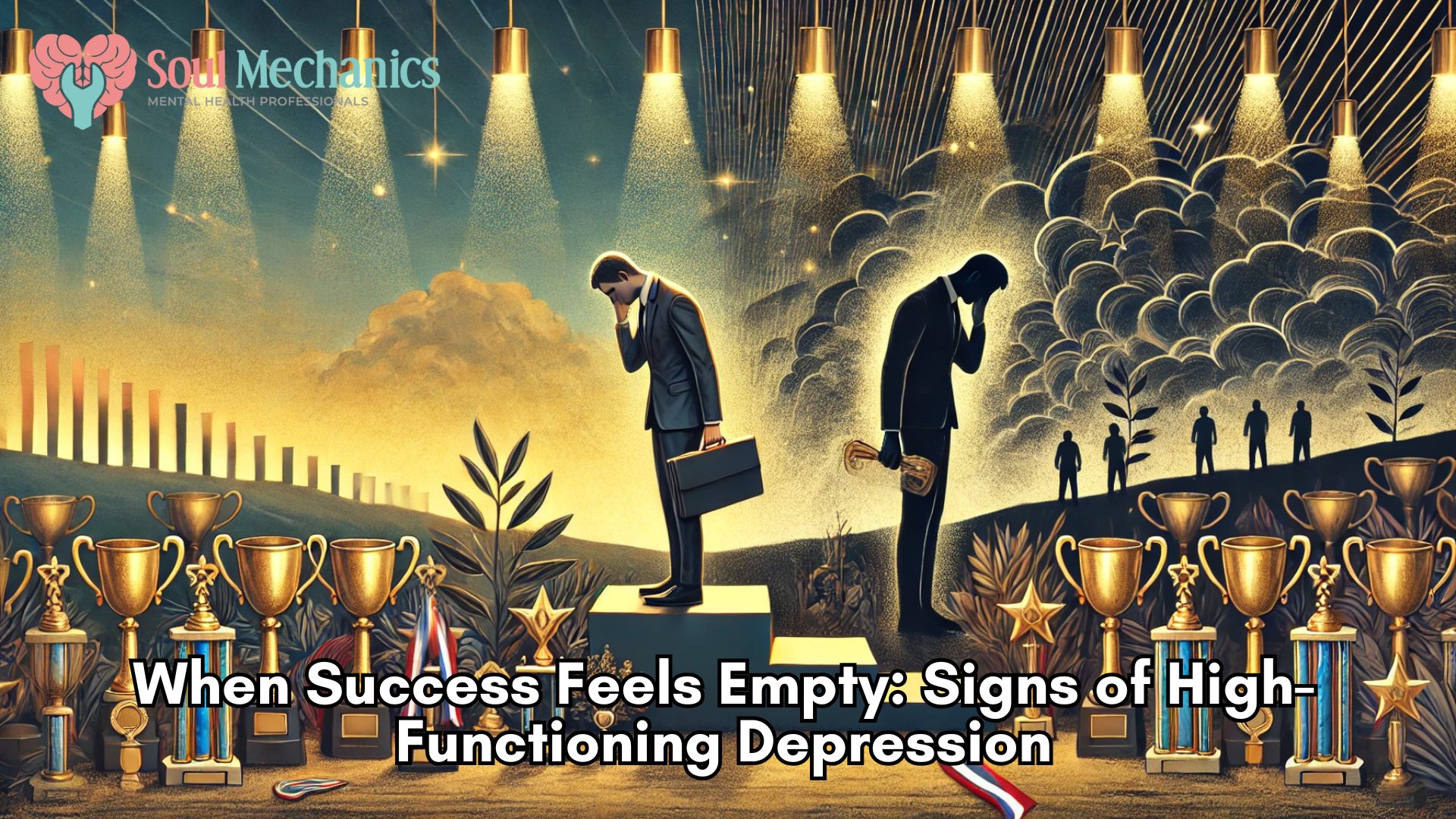High-Functioning Depression Signs: When Success Feels Empty
High-Functioning Depression Signs: When Success Feels Empty

Written By: Shaundtrya Ganasan, Licensed Counselor (KB11097)
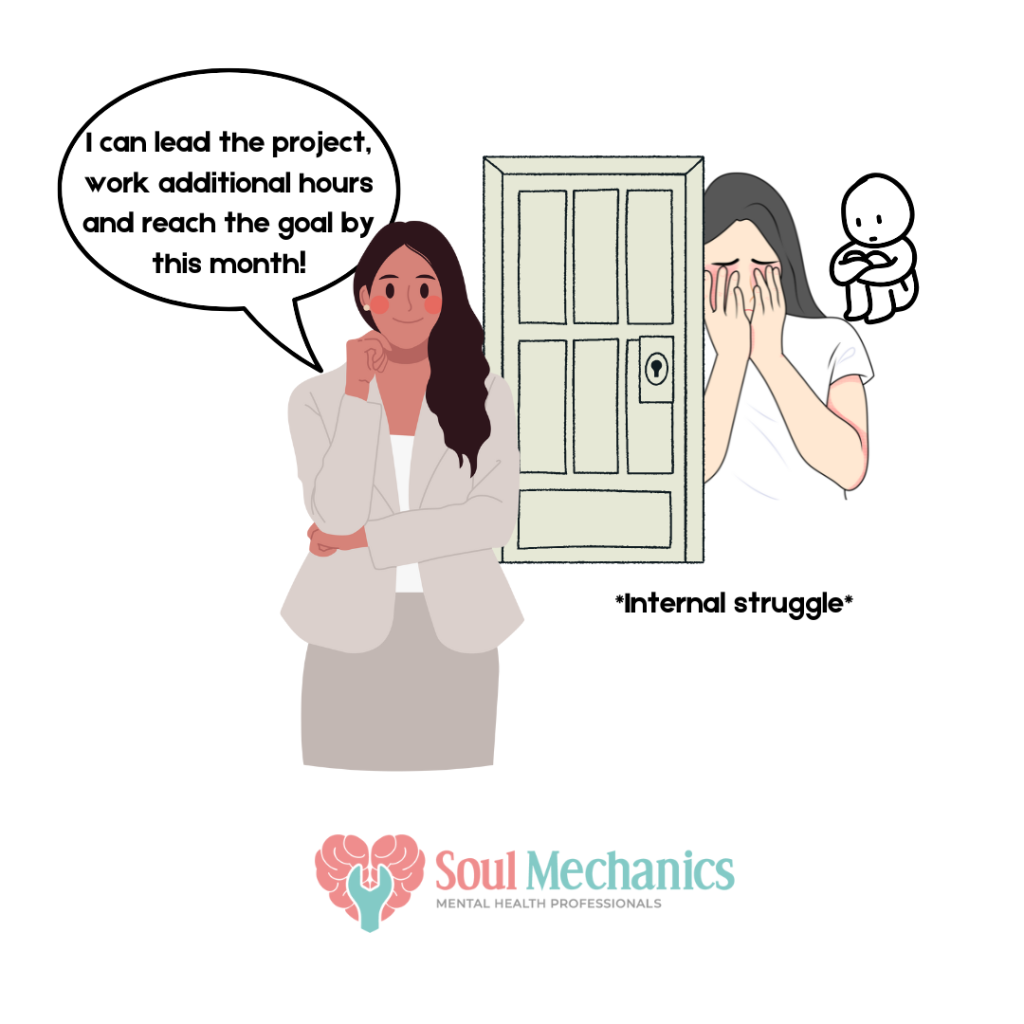
Imagine you have ticked all the boxes. From the outside, everything appears to be near perfection: a high-paying career, milestones of accomplishments, and a picture-perfect life. Yet, beneath the surface, there is a constant sense of emptiness. You’re going through life, but don’t feel the pride or joy that should come with success. The satisfaction or happiness you feel can be short-lived.
Hidden Struggles of Overachievers
Now let’s delve deeper into the above example. This paradox is a hallmark of many high achievers who are silently suffering from high-functioning depression. A condition that usually goes unnoticed. These individuals are often seen as the thriving ones, yet they may be silently experiencing a deep, constant sense of hollowness, sadness or fatigue.
In this article, let us further explore the signs of high-functioning depression, why it is very common among high-achievers, and how to address and work on it healthily.
What is High-Functioning Depression?
High-functioning depression is a depression form that has less noticeable symptoms than major depressive disorder with chronic low moods and a sense of hopelessness. If you are experiencing high-functioning depression, you will be able to maintain your image and responsibilities, as the term defines “high-functioning” - but internally, you may feel drained emotionally, disconnected and unable to find life’s true fulfilment.
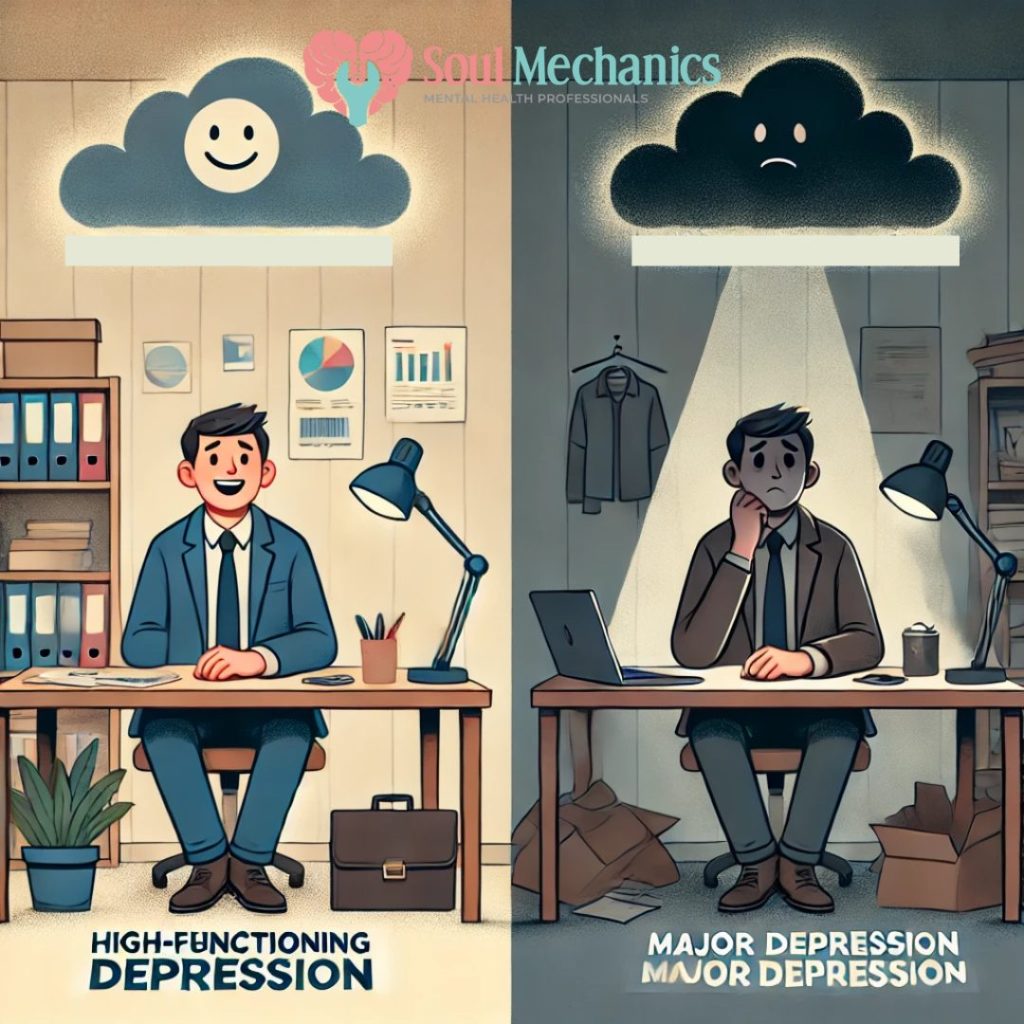
Unlike major depression which has more noticeable signs like social withdrawal, severe tiredness, or inability to function through daily life, high-functioning depression often involves one still going through daily life needs - like attending meetings, maintaining relationships, or meeting deadlines. However, they feel very disconnected or numb emotionally.
The Hidden Struggles of Overachievers
If you are experiencing high-functioning depression, success can be giving pride and can also be a facade that covers internal struggles. Below are some reasons why high-functioning depression is more significant among overachievers:
Perfectionism & Unrealistic Expectations

High performers or their caregivers often set impossibly high standards for them, believing that anything less than the set expectations is a failure. This drive towards excellence can be shadowed by the desire to prove oneself, get validation, or prevent the sense of inadequacy. However, if there is constant pressure to meet those expectations, it can cause burnout over time. The effort to always outperform others or maintain your best can mask deeper emotions like feelings of unworthiness or emotional exhaustion.
External Validation Over Internal Fulfilment
For many high-functioning ones, their accomplishments can be a form of external validation. Although this validation can be short-term rewarding, it will not address their deeper emotional hollowness or the need for real self-acceptance. This constant chase of approval and validation can further grow your feelings of void, as the external source of recognition is unsustainable in providing long-lasting fulfilment.
Fear of Vulnerability
Overachievers also frequently experience the fear of showing their weaknesses or vulnerability to others. Admitting their shortcomings or struggles can give them a sense of failure in a society prioritising success. Thus, they may start to mask their emotions and hide their pain with an outward appearance of productivity. This can lead towards an unhealthy loop, as the struggle to express vulnerability can create further emotional distress and feelings of isolation.
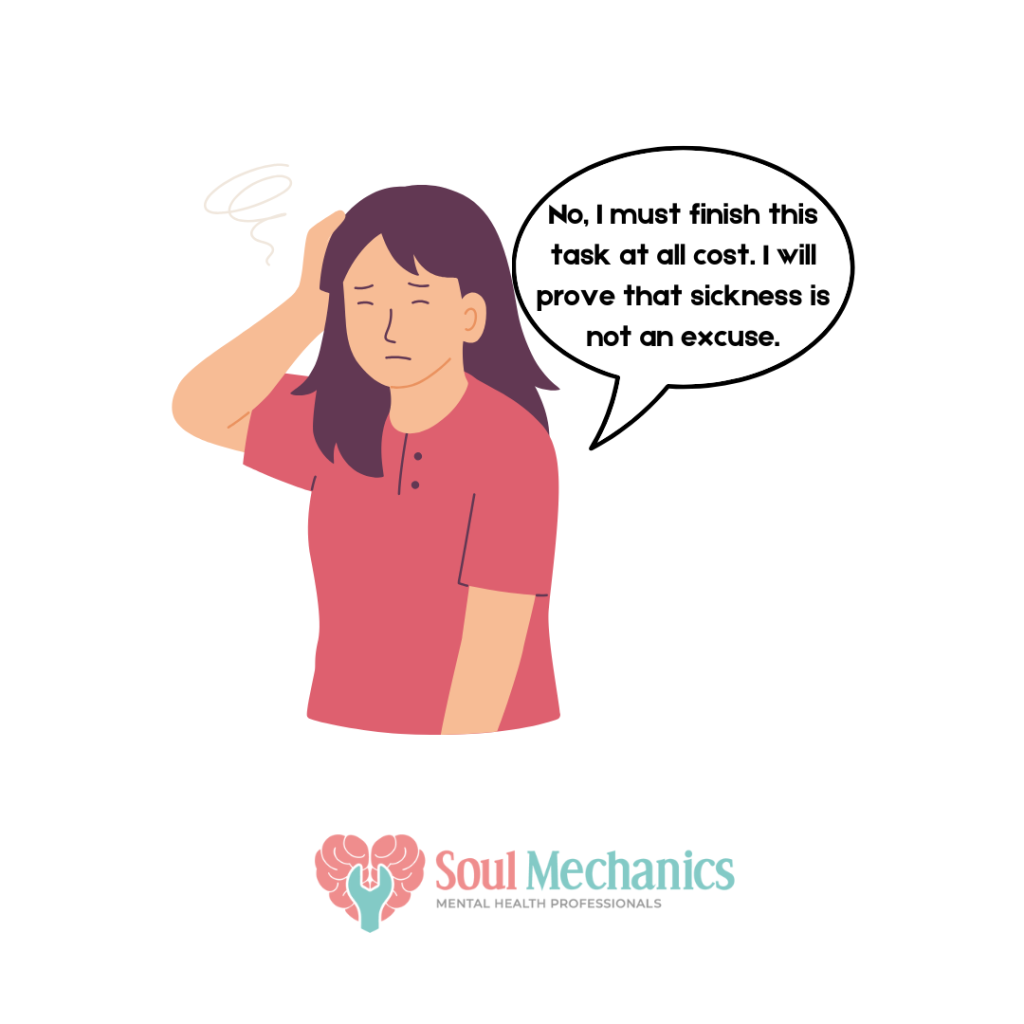
A False Sense of Control
Constantly focusing on achievements and success can lead towards a false sense of control over your life. High-functioning individuals may pride themselves on their ability and capacity to “manage it all”, yet it often comes with their emotional well-being at the expense. Over time, this false sense of control can cause them to experience burnout, due to the overwhelming emotional distress to constantly strive for success.
Signs of High-Functioning Depression
High-functioning depression may not be easy or immediate to notice as the affected ones can appear to be outwardly “having it all” and successful. However, below are some signs someone is struggling with high-functioning depression:
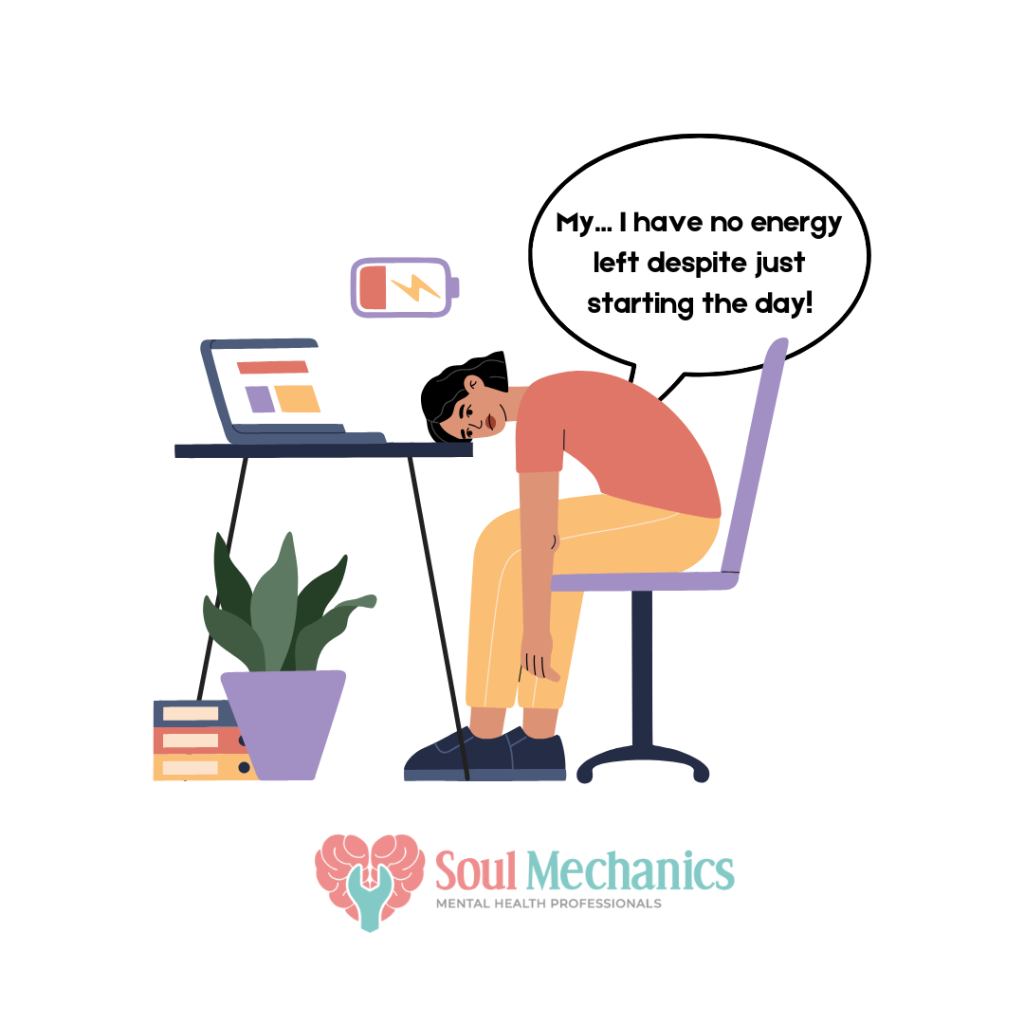
Chronic Fatigue
You may also feel tired and low energy, despite having good sleep, which can be a sign of high-functioning depression. The emotional responsibility or distress of maintaining the mask of outwardly happy can take a huge toll on your physical health; leaving you to feel exhausted, drained and demotivated.
Emotional Numbness
Although you manage to complete goals or meet expectations, a deep sense of void or emotional numbness will always linger. Success no longer brings you the same happiness or sense of fulfilment as it once did. You may also find it tough to be joyful or excited about anything or things you used to enjoy.
Overworking
If you are experiencing high-functioning, you may tend to cope with your depression by overworking or over-indulging yourself into responsibilities especially work-related to distract yourself from your emotional distress. Although your productivity may remain high, it can lead to feelings of hollowness and burnout.
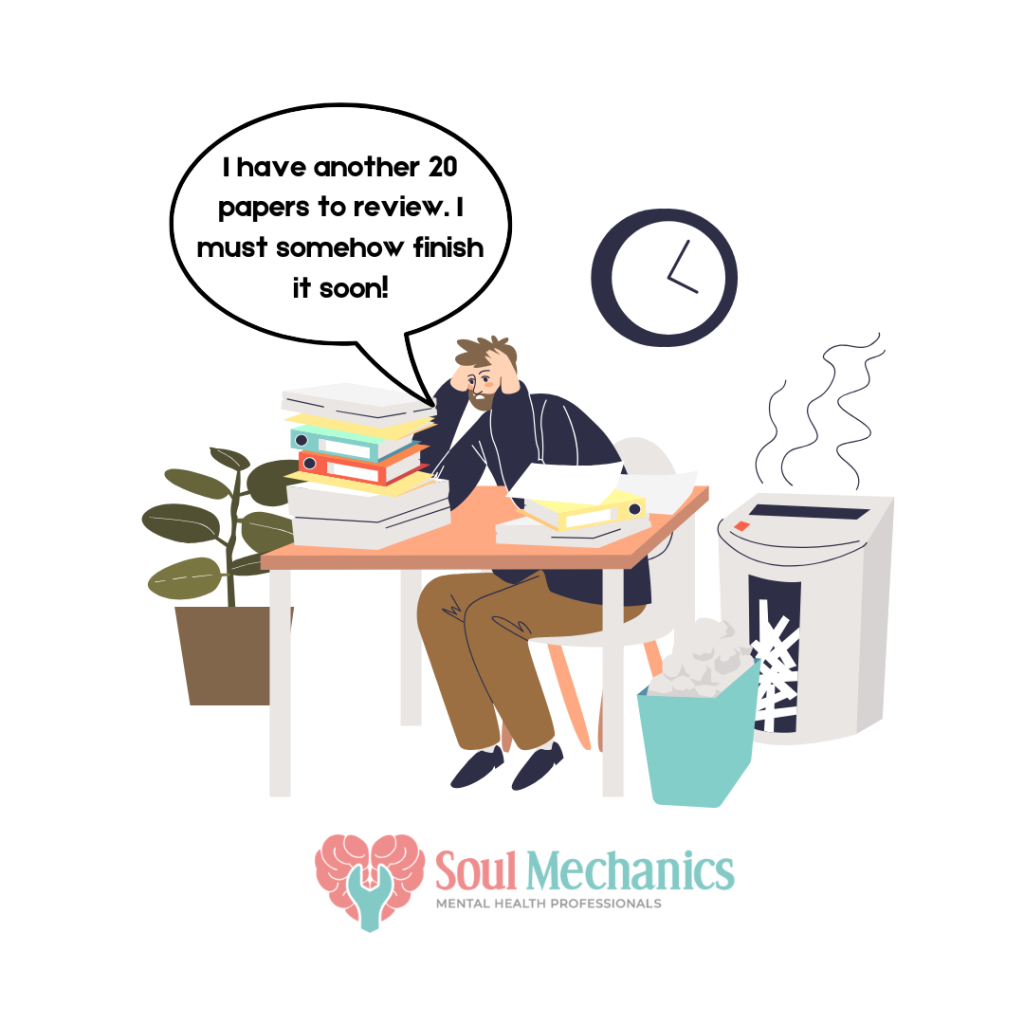
Social Withdrawal
Although you may still comply with certain obligations, you might still disconnect from having deeper connections. Spending time with loved ones can feel exhausting and you may not be ready to be emotionally available in more meaningful ways.
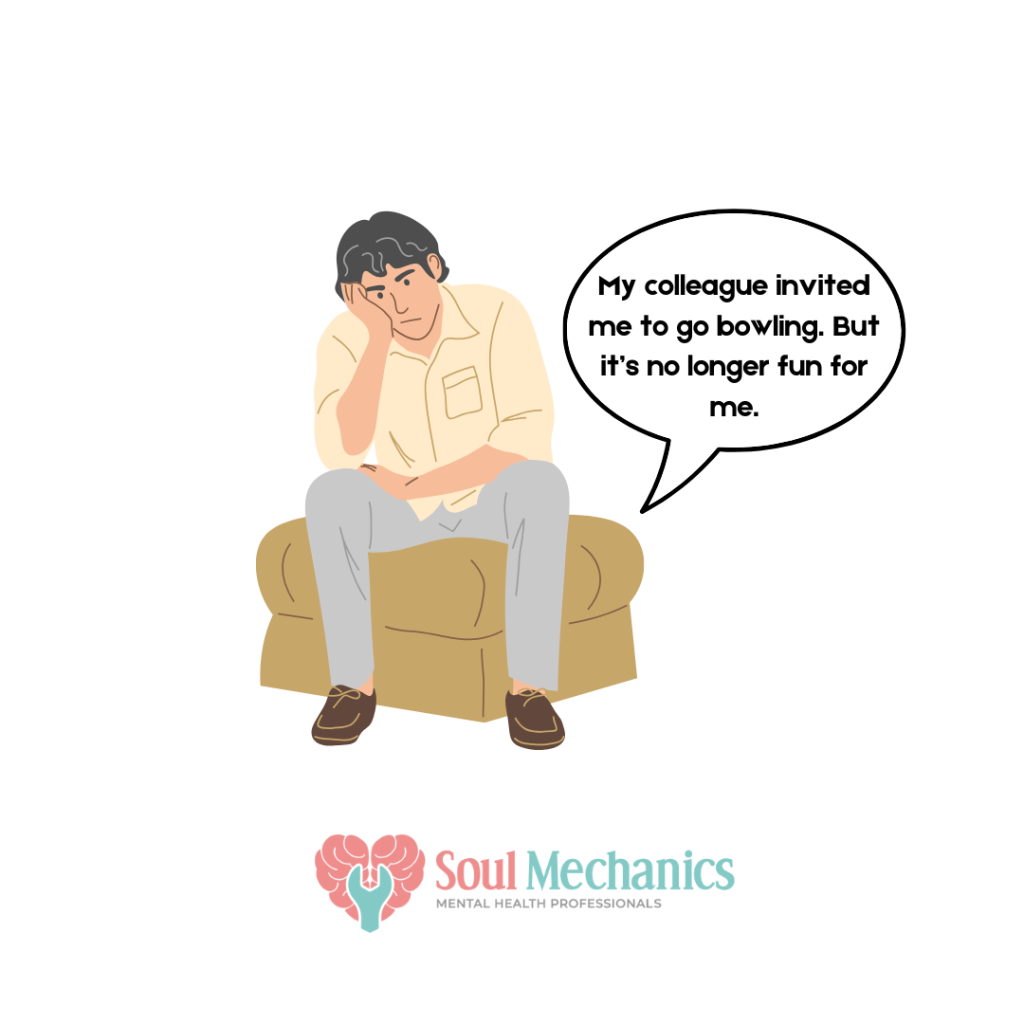
Lack of Enjoyment in Life
Things that you used to enjoy - be it hobbies, passion, or spending time with loved ones can no longer provide the same fulfilment. You may feel detached from these activities that once sparked your interest, which can further escalate your sense of emptiness.
Low Self-Esteem & Self-Criticism
Despite all the external success, there can be a constant internal voice within you that makes you believe you are still inadequate. You can also struggle with impostor syndrome if you are experiencing high-functioning depression, making you feel “not good enough” despite all your achievements and milestones. This persistent self-criticism can further make you work tirelessly for achievements.
Why Does Success Feel Empty?
When you are achieving in life, it is expected to feel joyful, fulfilled and successful. However, for those of you who are experiencing high-functioning depression, the reality can be different from your expectations. Below are some of the reasons why success can feel empty:
Internalized Pressure to Maintain Success
Once you start achieving, there is this expectation that follows you to either maintain or surpass it. This pressure to perform can lead to burnout and fatigue. When achievements do not bring you the anticipated relief, it can lead towards feelings of disappointment, as you constantly struggle to live up to your non-reducing expectations or standards.
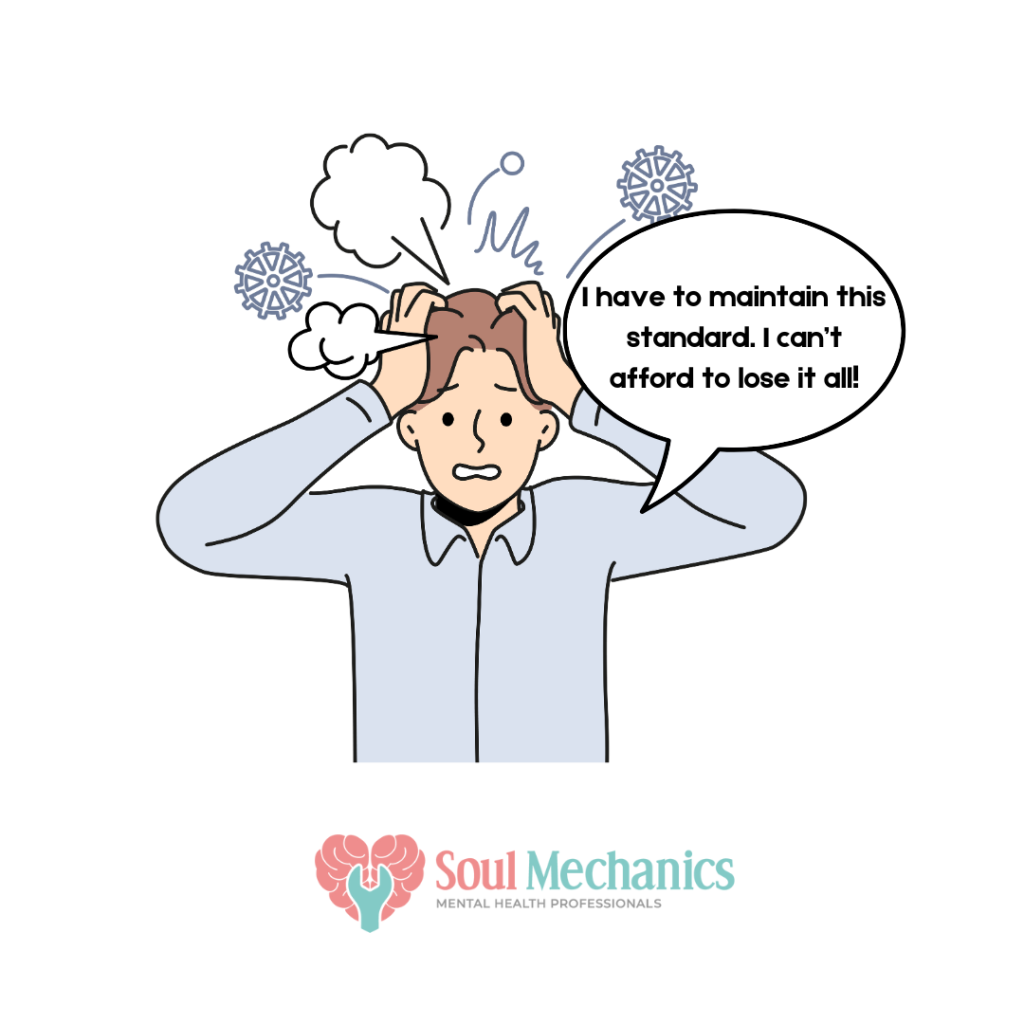
The Pursuit of External Validation
Success can also be associated with external validation if you are experiencing high-functioning depression. The approval or validation from others - be it loved ones, colleagues or society can be fleeting, but it cannot address your underlying, unconscious needs to feel accepted. Once your external validation fades or is not consistent, then your sense of emptiness is highly likely to return.
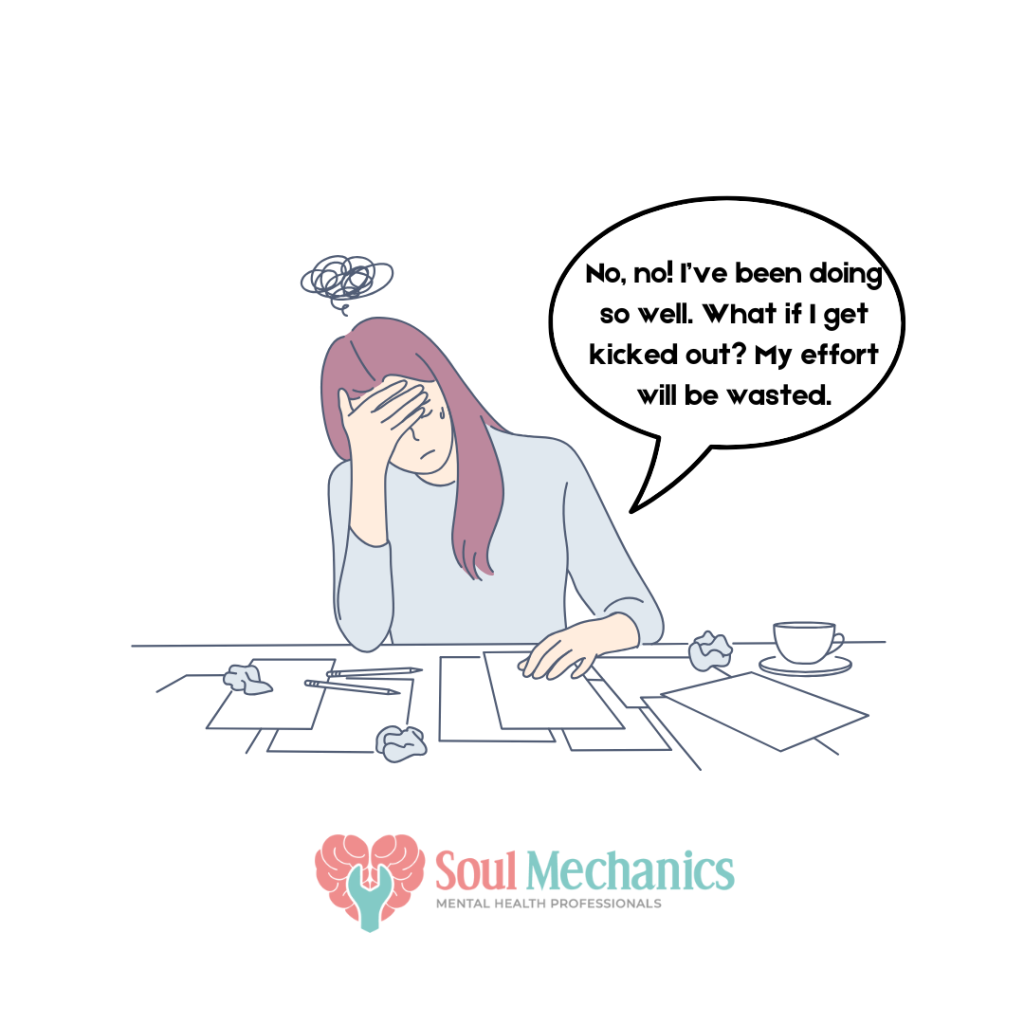
Fear of Losing It All
Another cause of success feeling empty could also be the underlying fear of losing it. If you are someone who works to keep on achieving more, there could be this constant fear that you may slow down or stop which can take away your hard-earned success. This fear can lead you to have a sense of insecurity and anxiety.
The Disconnect Between External & Internal Self
When you experience high-functioning depression, you can get disengaged between your outward successful personal and your internal emotional landscape. As you appear to be visibly having it all together, internally you may feel detached, lonely, overwhelmed, or unfulfilled. This can further make you experience a deeper sense of emptiness.
Recognizing High-Functioning Depression in Yourself or Others
If you feel that you may be experiencing high-functioning depression, it is crucial to take a step back and assess your emotional state. Seek assistance from a certified mental health therapist for professional diagnosis and support. You can ask yourself these questions:
- Do I suppress my emotions by being busy catching up with work?
- Do I struggle with a sense of unworthiness, despite outward success?
- Am I struggling to experience joy in things that once brought me happiness?
- Do I always feel emotionally drained, even after accomplishing something significant?
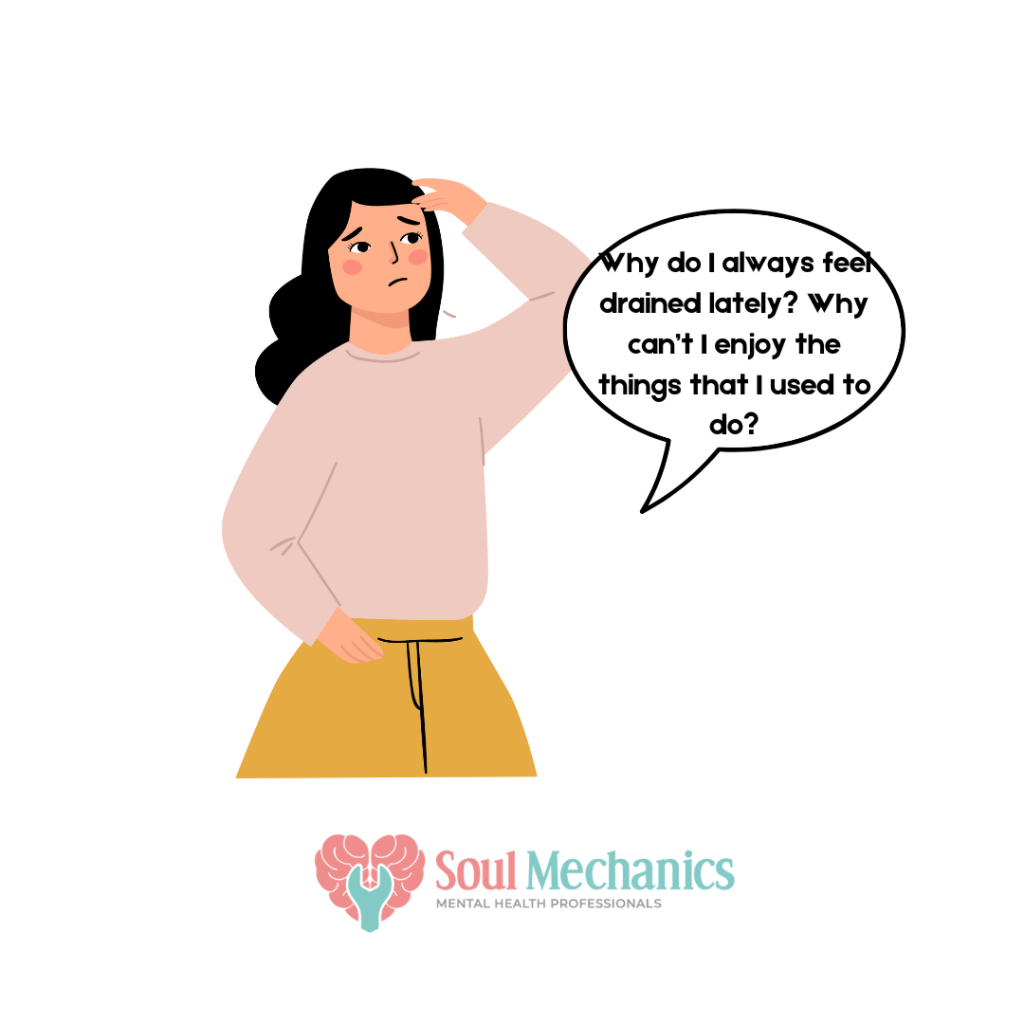
Identifying and addressing these signs can be your first step toward healing and seeking mental health assistance to explore your underlying that leads towards high-functioning depression.
How to Address High-Functioning Depression
Overcoming high-functioning depression requires you to make consistent and conscious efforts. Below are some strategies to gradually break free from the loop of your emotional void and burnout:
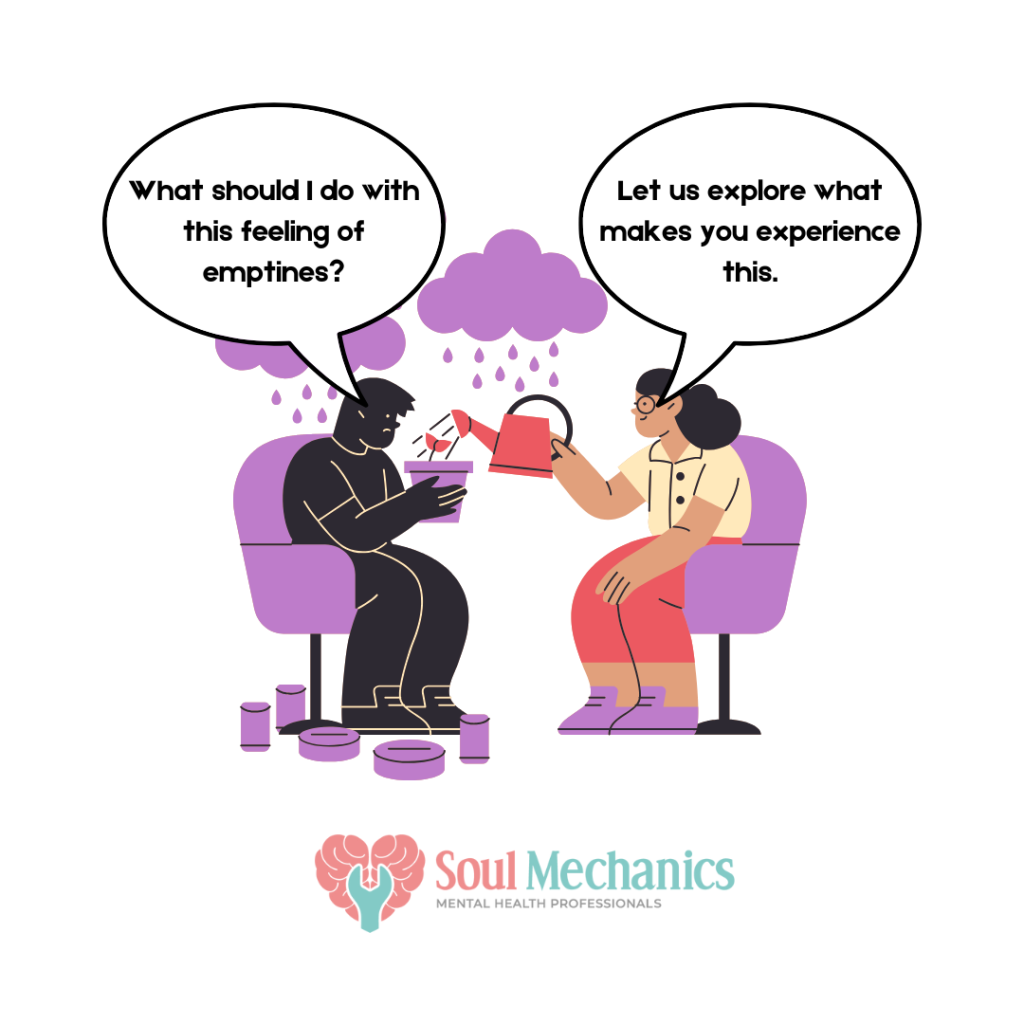
Seek Professional Assistance
If you are struggling with high-functioning depression, it is crucial to seek support from a professional mental health therapist. Through therapy, you can gradually explore the underlying of your depression and develop more personalized skills and tools to healthily manage them.
Practice Self-Compassion
It’s easy to fall into the trap of self-blaming, especially when you are someone who always pushes yourself to do more and better. Practice self-compassion by providing yourself with some understanding and kindness. Allow yourself to take breaks when needed, prioritize your self-care, and it’s okay if you are not perfect.
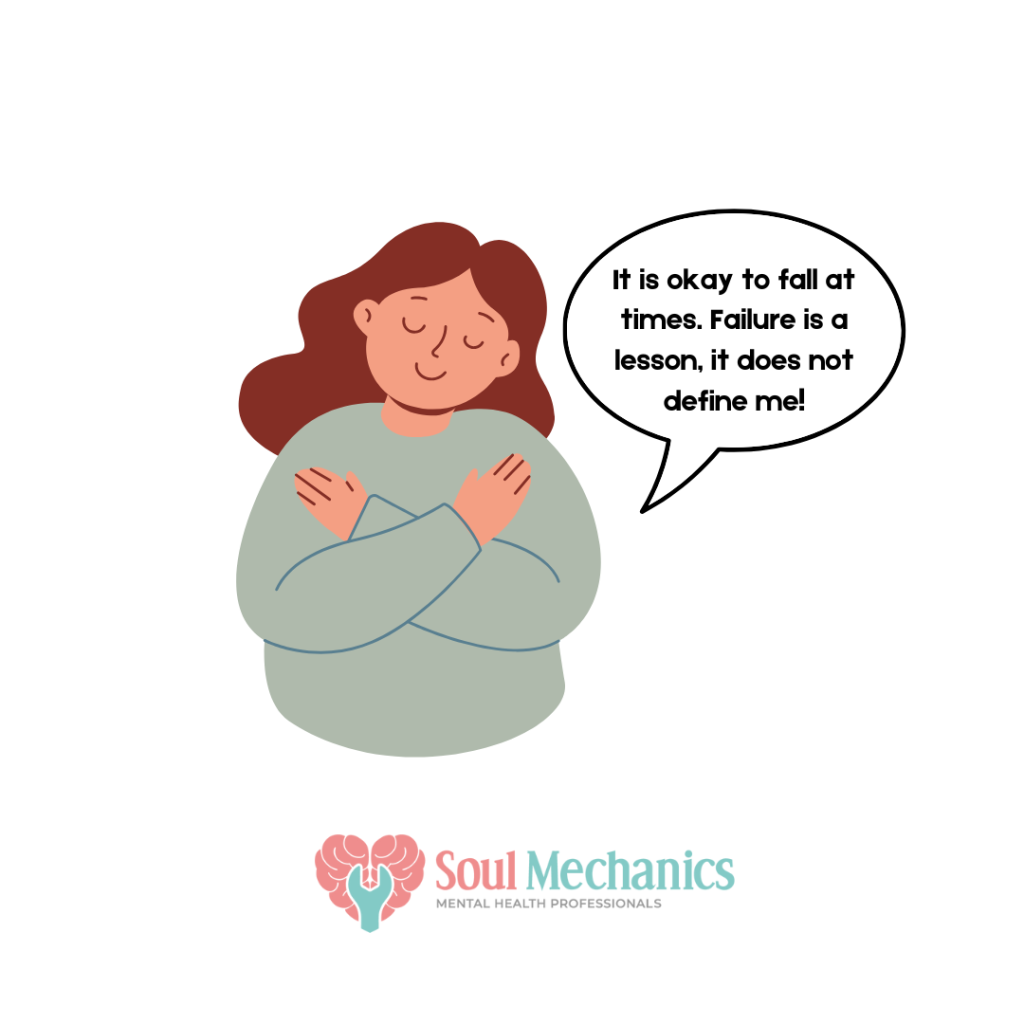
Slow Down & Reconnect with Yourself
Overachievers often have the need to always be busy to prevent themselves from facing difficult emotions. Reconnect with your inner world by taking time for activities that soothe your soul. Be it spending time with loved ones, engaging in mindfulness or simply slowing down to discover or reconnect with what truly matters to you.
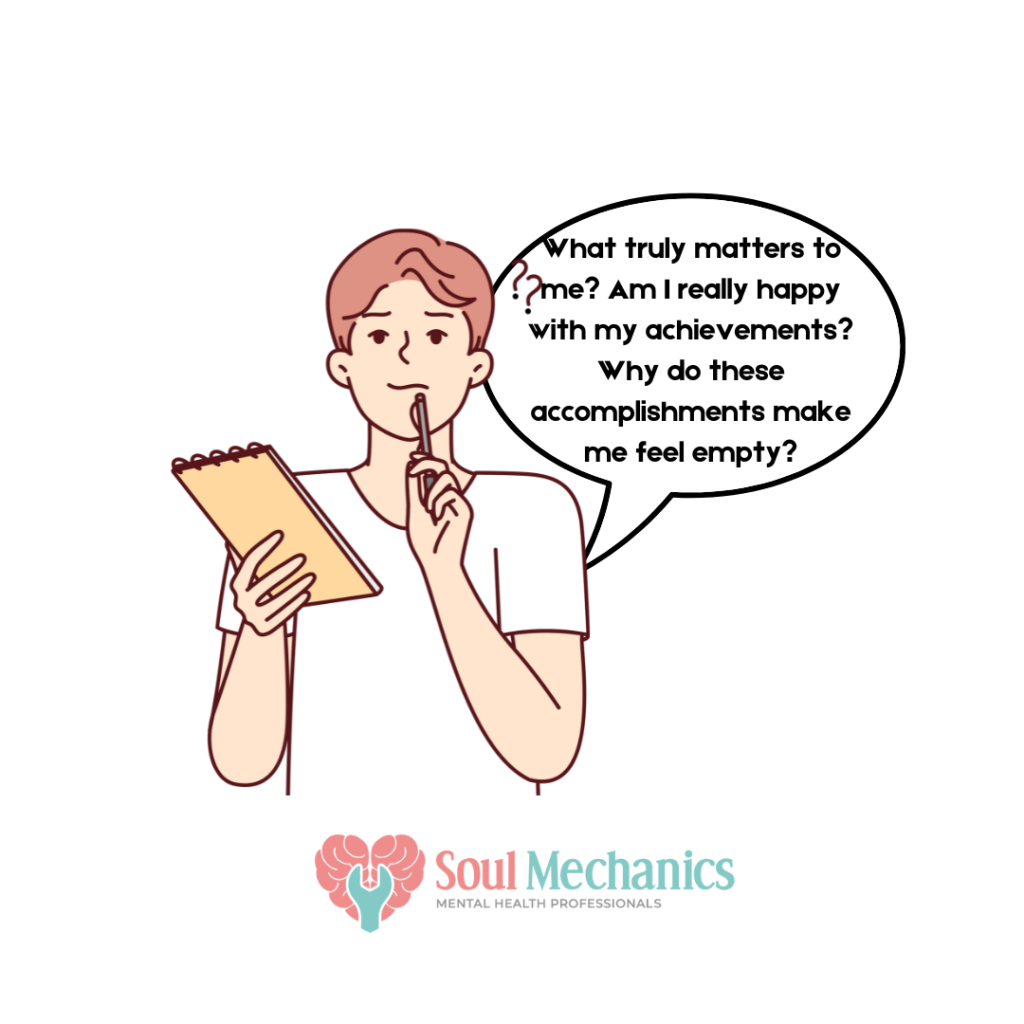
Redefine Success
Rather than constantly tying your happiness to external achievements or validation, practice redefining what is your true definition of success. Success does not necessarily mean career accomplishments, it can be about exploring passion, meaningful relationships, and experiencing small joys.
Build Meaningful Connections
Loneliness and detachment can further escalate your high-functioning depression symptoms. Reach out for support from your loved ones to share your feelings. Begin building deeper, more genuine connections that can navigate you feel less alone in your struggles.
Conclusion
In short, high-functioning depression is often an invisible internal struggle. It is more common among those who appear to be sorted and have it all together. The emptiness or hollowness that comes with success can feel isolating and helpless. But it is also crucial to remember that you are not alone in this process. By addressing the unconscious or underlying roots of your high-functioning depression and taking needed steps to work through it, you will be able to experience a sense of fulfilment beneath external accomplishments.
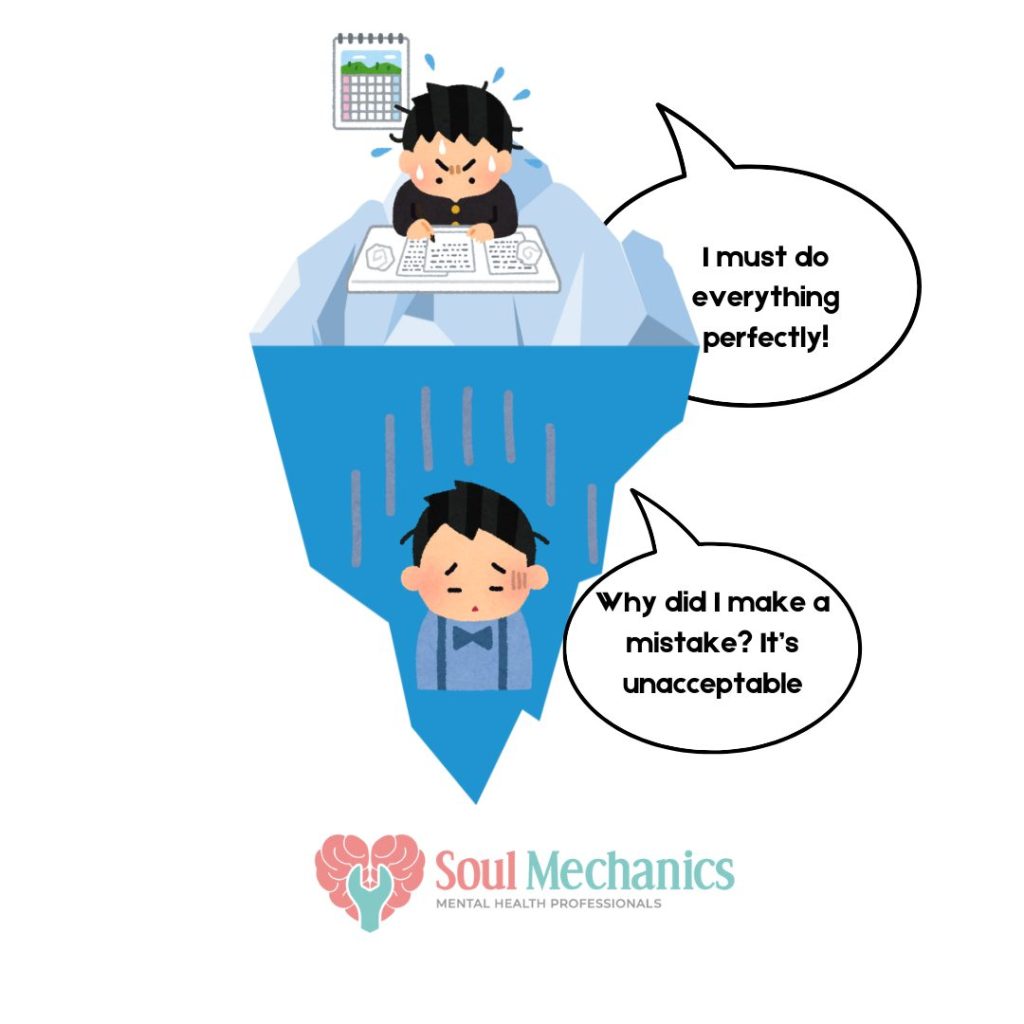
True happiness will not be defined by success alone. It is through reconnecting with your real, authentic self, embracing vulnerability, nurturing your inner child and prioritizing your emotional well-being.
If you’re looking for a therapist in Kota Damansara or Ipoh area, you can click here for more information.
If you enjoyed reading this, why not broaden the horizon of knowledge by learning about "Understanding Derealisation: When the World Feels Unreal"? You can read the blog here.
For more content related to mental health do follow us on our official Instagram.

